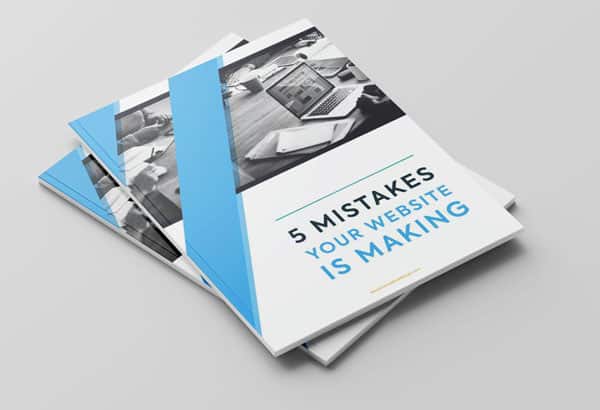Whether you have a stable job or are looking for work, having a new stream of income will always be welcome. One of the best ways to make money is to work as a freelancer.
For many 9-to-5 employees, freelance work not only augmented their income, it was also the first step to a rewarding career as an entrepreneur.
What Is A Freelancer?
A freelancer is a person who works independently and offers services to businesses that are interested in his specific skill set.
Essentially, a freelancer is self-employed. He can be considered an entrepreneur because he manages the needs of his business. Similar to an entrepreneur, he is responsible for the success or accountable for the failure of his freelance business.
What Are The Benefits Of Becoming A Freelancer?
The benefits presented to a freelancer are the same benefits presented to an entrepreneur.
- You have your own time.
- You have a chance at achieving financial independence.
- You have control over your financial growth.
- You are the main decision-maker.
- You choose who you work with.
- You choose the clients you want to manage.
In other words, a freelancer is his own boss!
How To Make Money As A Freelancer
However, being the boss isn’t easy.
If the decisions you made resulted in losses to your business, there’s no one else to blame. It becomes your sole responsibility to find solutions to situations before they become full-blown problems.
Likewise, achieving financial independence is never guaranteed.
Having control over your financial growth entails making the right decisions.
- How many clients can I handle without affecting the quality of work?
- Am I charging the right fees?
- Should I keep networking for more clients?
- Do I need to hire people now to expand my business?
- What tasks should I outsource?
If you’re feeling overwhelmed right now – don’t worry!
We’ve created this guide to help you get started as a freelancer and make good money along the way.
1. Identify Your Skill Set
There are thousands of jobs available on every freelancing site. Businesses from all over the world are looking for freelancers who can help them get work done at the least cost.
Unless you identify your skill set, you’ll get lost – not knowing which jobs you should apply to.
Do you consider yourself an expert in a particular skill? If so, are you 100% confident that you can offer this skill to a client and assure him of high-quality work and top-level performance?
For example, you have experience as a Graphic Designer. You’ve done graphic design for friends and for your department at the company. How qualified are you as a Graphic Artist?
You should be proficient in a few software programs for graphic design such as Adobe Photoshop, Adobe InDesign, and CorelDraw Graphics Suite. Some of the job ads will specifically require proficiency and experience in conducting graphic design work using the software.
It would also be to your advantage if you are proficient with a particular style of art such as Art Deco, Art Nouveau, Cubism, Pop Art, or Impressionism. The client will have an idea of your approach to design.
2. Define Your UVP
UVP stands for Unique Value Proposition. Put simply, it’s the answer to the question in the minds of potential clients who come across your profile:
“Why should I hire you as my freelancer?”
You’re not the only freelancer applying for that job. HR Officers and business owners will be browsing through proposals and online profiles to hire the freelancer who can do the job according to their expectations.
What makes you different – and the best candidate over everyone else?
List down your hard and soft skills.
Hard skills are the technical skills or the ones acquired through formal education, training, and experience. Soft skills refer to the personality or behavioral attributes that best define your approach to work.
Review your hard and soft skills carefully. Then, come up with a phrase that best sums up your value to the potential client. This phrase is your UVP and it should appear in your online profiles and applications.

3. Establish Your Service Offerings
What services can you offer potential clients?
For example, if you’re a Digital Marketer, you might be able to offer the following services:
- Search Engine Optimization (SEO)
- Search Engine Marketing (SEM)
- Social Media Marketing/Management (SMM)
- Content Writing
- Keyword Research
You can also include a list of your core competencies:
- Project Management
- Hiring and Recruitment of Remote Employees
- Quality Assurance
- Planning and Strategy Design
- Analytics and Process Improvement
Be as detailed as possible but don’t offer more than what you can provide. If you offer services that you’re not capable of doing and then fail to deliver results, you might compromise your career as a freelancer.
4. Set Up a Business Website
Having a website will professionalize your freelancing business. There are many benefits to having a website as a freelancer:
- The About Me page will give potential clients an idea of who you are as a person. The client will know if he can work with you.
- The Home page will highlight your UVP and inform the client what you can do for him.
- The Portfolio page will shine the spotlight on your past work or examples of hard skills.
- The Services page will summarize the list of services that you can offer to interested clients.
- The Contact Me page will inform interested parties how to get in touch with you.
- Add a Blog page so you can share your expertise and knowledge to potential clients.
With a website, you can be reached by potential clients through search. You won’t be limited by social media or by freelancing websites.
5. Create an Online Profile
An online profile is your resume on the Internet. You have to create an online profile in social media networks and freelancing platforms.
Here are important things to keep in mind when creating an online profile:
- Write a short and concise introduction that’s easy to read.
- Make sure your information is updated regularly.
- Use a professional email address.
- If required, upload a professionally done headshot.
- Summarize your work experience, educational attainment, and career achievements in bullet point format.
Lastly, make sure your online profiles are consistent on all platforms. You don’t want a social media profile that reads differently from your profile at UpWork.
6. Network for Clients
Successful networking is a numbers game. The more often you network, the higher the probability of getting noticed. That said, landing a client comes down to finding qualified prospects or those who are genuinely interested in hiring your services as a freelancer.
How do you find qualified prospects?
First, you have to create a Client or Buyer Profile.
- Who do you think will most likely hire your services?
- Where do they come from?
- What is the size of their business?
- What is their industry?
- What is their budget for remote employees?
- What type of services or skills do they need?
- How much work will they require per freelancer?
Second, you have to be selective about where to look for open positions or available projects.
Similar to social media sites, there are many freelancer platforms on the Internet. Some platforms cater to specific skills.
For example:
- UpWork – Content writers, web designers, software developers, and virtual assistants
- Fiverr – Graphic designers, content writers, and social media marketers.
- Guru – Website designers, software developers, and virtual assistants.
- Odesk – Content writers, customer service specialists, and virtual assistants.
- PeoplePerHour – Graphic designers, web developers, software developers, research specialists, and video editors.
Once you’ve identified the best platform to market and promote your skills, then it’s time to go networking!
- Be conservative with your goals. To land your first client, assume a success rate of only 2%. Therefore, to get your first sign-up, you must apply to at least 50 job openings or projects.
- Set a time for networking activity. In order to apply to 50 job openings or projects in one month, you only have to target 1-2 prospective clients per day. Two hours per day will be more than enough time to be selective about your choices.
- Go Old School. Who says online is the only way to go? You can attend networking events or conferences for small businesses. There are local businesses that are constantly on the lookout for freelancers.
Even if you’ve signed up a client – don’t stop networking. Continue to look for good opportunities on select freelancer platforms and stay active in social media.
7. Focus on Quality of Work
It’s great to be in demand. However, freelancers are not immune to the Law of Diminishing Quality of Work.
Sure, you can make more money by accepting more freelance work. The downside is the more projects you accept, the more deadlines you have to meet, and thus, the higher the probability of work quality getting compromised.
You might think otherwise, but no one is Superman. You have to rest and relax your mind. Also, ask yourself why you became a freelancer in the first place. Is it because you want to have more time for yourself and your family?
As a freelancer, always focus on maintaining – or exceeding – the quality of work. If clients are happy with your service, they will stay with you. More so, they might even recommend you to their associates and friends.
8. Get Testimonials From Clients
Testimonials from happy clients are more powerful than paying for micro or macro influencers for their endorsements. Why? For the reason that testimonials are organic, natural, and appear more sincere than paid endorsements.
If a potential client wants to know if the testimonial is genuine, all he has to do is to contact the person who gave the testimony.
Having multiple testimonials can be greatly capitalized if you have a website. Place them on your homepage so that website visitors can see them right away.
9. Build Up Your Online Presence
The key to be seen and noticed by potential clients is to stay active on the Internet:
- Join interest/focus groups on social media and actively participate in the discussions.
- Post at least once a day on social media. If you don’t have a blog, curate relevant content or post regular status updates.
- Share your opinions but be mindful – and respectful – of those who don’t share your views.
- Another option you can consider if you don’t have a blog page is to blog from your LinkedIn account.
Don’t hesitate to give advice on the Internet even if you won’t get paid for it. The important thing is to let potential clients know that you are competent and highly knowledgeable about your profession and industry.
Conclusion
We saved the best for last!
“As a freelancer, how much should I charge clients for my services?”
When you’re starting your career as a freelancer, don’t charge potential clients what you believe you’re worth. Let your success eventually determine your fees.
If you have no experience as a freelancer and your online profile shows that you haven’t landed many clients, if any at all, don’t charge a rate that’s much higher than what other freelancers are charging.
Your first objective as a freelancer is to get the ball rolling by signing up your first client. Contrary to popular belief, many companies that are looking for freelancers are less concerned about costs than the quality of work.
Hiring freelancers carry other cost-saving benefits for companies such as paying only for productive hours and setting the work schedule according to a fixed budget. These companies want to be sure they get what they pay for.
Sign up a client first and then prove your worth by performing well and above expectations.
If you’ve been consistent with the quality of your work, garnered great feedback from your clients, and have built a steady reputation as an amazing freelancer who can deliver results – then, by all means, raise your fees!
Your skills shouldn’t be commoditized. If you’re really good at what you do, then clients won’t mind paying a premium.
If you’re thinking about setting up a personal website for your freelance business, give us a call and we’ll build one for you.
And if you enjoyed this article, please feel free to share it with your friends.






